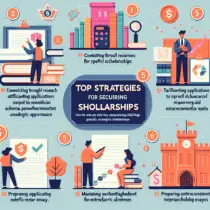
Are you a student looking to achieve academic success? Look no further! This ultimate guide is here to provide you with valuable tips and tricks to help you excel in your studies. Whether you’re in high school, college, or pursuing a graduate degree, these strategies are designed to support your journey towards success. From time management to study techniques, this comprehensive guide covers everything you need to know to reach your full potential as a student.
As a student, it’s important to have the right tools and strategies in place to succeed academically. By implementing the tips and tricks outlined in this guide, you’ll be able to enhance your learning experience and achieve your goals with confidence. So let’s dive in and discover the ultimate guide for students: tips and tricks for success!
**Effective Time Management**
One of the most crucial aspects of academic success is effective time management. As a student, you have multiple responsibilities such as attending classes, completing assignments, studying for exams, and participating in extracurricular activities. By learning how to manage your time efficiently, you can stay organized and ensure that you accomplish all of your tasks effectively.
To improve your time management skills, start by creating a daily or weekly schedule that outlines all of your commitments. Include time for classes, studying, assignments, exercise, relaxation, and any other activities that are important to you. Prioritize tasks based on deadlines and importance so that you can focus on what needs to be done first.
**Effective Study Techniques**
Successful students know how to study effectively. Instead of simply re-reading notes or textbooks, try using different study techniques that are proven to enhance memory retention and comprehension. Some effective study techniques include:
– **Active Recall**: This technique involves testing yourself on the material without looking at your notes. By actively recalling information from memory, you can strengthen neural pathways and improve long-term retention.
– **Spaced Repetition**: Instead of cramming all of your studying into one session, spread out your study sessions over time. This technique helps reinforce learning by reviewing information at spaced intervals.
– **Mind Mapping**: Create visual representations of concepts using diagrams or charts. Mind mapping can help you organize information in a way that is easier to understand and remember.
**Engage with Your Learning**
To truly succeed as a student, it’s important to engage with your learning both inside and outside the classroom. Actively participate in class discussions, ask questions when something is unclear, and seek out additional resources to deepen your understanding of the material.
Outside of class, consider forming study groups with peers who share similar academic goals. Collaborating with others can provide different perspectives on the material and help reinforce key concepts through discussion. Additionally, seek out opportunities for hands-on learning experiences such as internships or research projects related to your field of study.
**Maintain a Healthy Work-Life Balance**
While academics are important, it’s crucial for students to maintain a healthy work-life balance in order to avoid burnout and maintain overall well-being. Make sure to prioritize self-care activities such as exercise, proper nutrition, sufficient sleep, and relaxation.
Find activities outside of academics that bring you joy and fulfillment such as hobbies or spending time with friends and family. Taking breaks from studying is essential for recharging your mind and body so that you can return to your work refreshed and focused.
**Stay Organized**
Organization is key when it comes to academic success. Keep track of assignments, deadlines,
and important dates using a planner or digital calendar system. Create designated study spaces free from distractions where you can focus on completing tasks efficiently.
Use tools such as color-coded folders or sticky notes to stay organized throughout the semester. Break down larger tasks into smaller manageable chunks so that they feel less overwhelming. By staying organized,
you can reduce stress levels
and ensure that nothing slips through
the cracks.
**FAQ (Frequently Asked Questions)**
1) How do I overcome procrastination?
Procrastination can be a common issue among students but there are strategies
to overcome it.
Try using the Pomodoro Technique which involves working for 25 minutes followed by a 5-minute break.
Break large tasks into smaller manageable chunks
to make them feel less daunting.
Identify what triggers
procrastination for you
and create strategies
to combat those triggers
2) How do I deal with exam anxiety?
Exam anxiety is normal but there are ways
to manage it effectively.
Practice relaxation techniques such as deep breathing exercises or progressive muscle relaxation.
Prepare thoroughly by studying consistently over time rather than cramming at the last minute.
Visualize yourself succeeding during exams
and focus on positive affirmations
3) What should I do if I’m struggling academically?
If you’re having difficulty academically,
don’t hesitate
to seek help from professors,
tutors or academic advisors.
They can provide guidance,
resources
and support tailored
to meet
your individual needs.
Consider forming study groups with peers who may be able help reinforce concepts
4) How do I balance academics with extracurricular activities?
Balancing academics with extracurricular activities requires effective time management skills.
Create a schedule that allocates specified times for both academics
and extracurriculars so that neither aspect suffers
due
to lack
of attention.
Prioritize commitments based on their importance
and adjust accordingly
In conclusion,
by implementing these tips
and tricks
for academic success,
you can enhance
your learning experience
and achieve
your goals
as a student.
Remember
that everyone’s journey towards success looks different,
so find what works best for you
and stay committed
to continuously improving
yourself
as
a
learner






